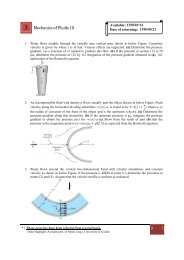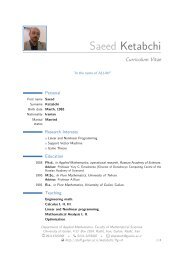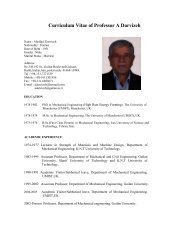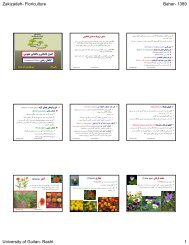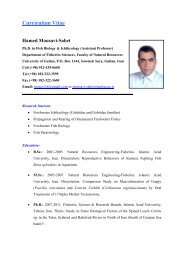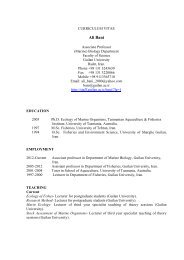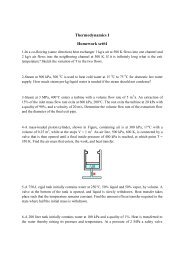Medical Tourism in Developing Countries
Medical Tourism in Developing Countries
Medical Tourism in Developing Countries
- No tags were found...
You also want an ePaper? Increase the reach of your titles
YUMPU automatically turns print PDFs into web optimized ePapers that Google loves.
Would You Like a Safari With Your Lasik Surgery? ● 87comb<strong>in</strong>ed public and private domestic shares. The largest form of foreignparticipation is through direct foreign <strong>in</strong>vestment, which takes place <strong>in</strong> twoways, as <strong>in</strong> medical tourism. A foreign company may purchase or build atourist facility from scratch, or it may lend <strong>in</strong>vestment capital to a domestictourism enterprise. Such jo<strong>in</strong>t ventures are common. As mentioned <strong>in</strong>chapter 2, LDC governments welcome foreign <strong>in</strong>vestment because it satisfiesthe high capital requirements of the <strong>in</strong>itial <strong>in</strong>vestment <strong>in</strong> <strong>in</strong>frastructureand facilitates, it transfers some of the risks to foreign firms, it facilitatesthe transfer of technology and managerial know how, it is a reliable sourceof tax revenue, and it stimulates development <strong>in</strong> other parts of the economythrough backward l<strong>in</strong>kages. Governments often adopt policies that encouragethe <strong>in</strong>flow of venture capital to construct resorts and hotels that arethen favored with a variety of tax <strong>in</strong>centives.In addition, foreign <strong>in</strong>volvement <strong>in</strong> the LDC tourist <strong>in</strong>dustry occursthrough the <strong>in</strong>termediary sector <strong>in</strong>clud<strong>in</strong>g tour operators and travel agents.There are many such operators and the market is highly competitive.Both with respect to medical tourism and nonmedical tourism, there areproblems <strong>in</strong> foreign ownership and control that have led to various formsof regulation. As discussed <strong>in</strong> chapter 2, high leakages may occur as a resultof the repatriation of profits and <strong>in</strong>comes. Also, foreign bus<strong>in</strong>ess activitiesmay drive out domestic competition and suppress local entrepreneurship.International Lend<strong>in</strong>g InstitutionsS<strong>in</strong>ce public-private cooperation and collaboration <strong>in</strong> health have becomecommon, <strong>in</strong>ternational lend<strong>in</strong>g <strong>in</strong>stitutions such as the World Bank and theInternational Monetary Fund (IMF) do not limit themselves to fund<strong>in</strong>gpublic projects <strong>in</strong> develop<strong>in</strong>g countries, but rather have expanded to <strong>in</strong>cludeprivate companies. Nevertheless, their primary health related objective is tofund public health projects. Such projects usually focus on policy and <strong>in</strong>stitutionalreforms aimed to improve service delivery. 94 They also support thedevelopment of health f<strong>in</strong>anc<strong>in</strong>g policy and aim to <strong>in</strong>crease the efficiencyof public expenditures. These <strong>in</strong>stitutions explore a pro-poor focus to<strong>in</strong>crease the availability of health care to more people. Also, sometimes theprojects promote outsourc<strong>in</strong>g <strong>in</strong> order to achieve efficiency ga<strong>in</strong>s. Indeed,the countries under study have received money from the <strong>in</strong>ternational communityfor this purpose.International lend<strong>in</strong>g occurs for public health programs, not for privatemedical care for profit. Nevertheless, it is relevant for a study of medicaltourism <strong>in</strong>sofar as <strong>in</strong>ternational lend<strong>in</strong>g is used to build <strong>in</strong>frastructure thatis crucial for the <strong>in</strong>dustry’s development. Develop<strong>in</strong>g local <strong>in</strong>frastructure, as



